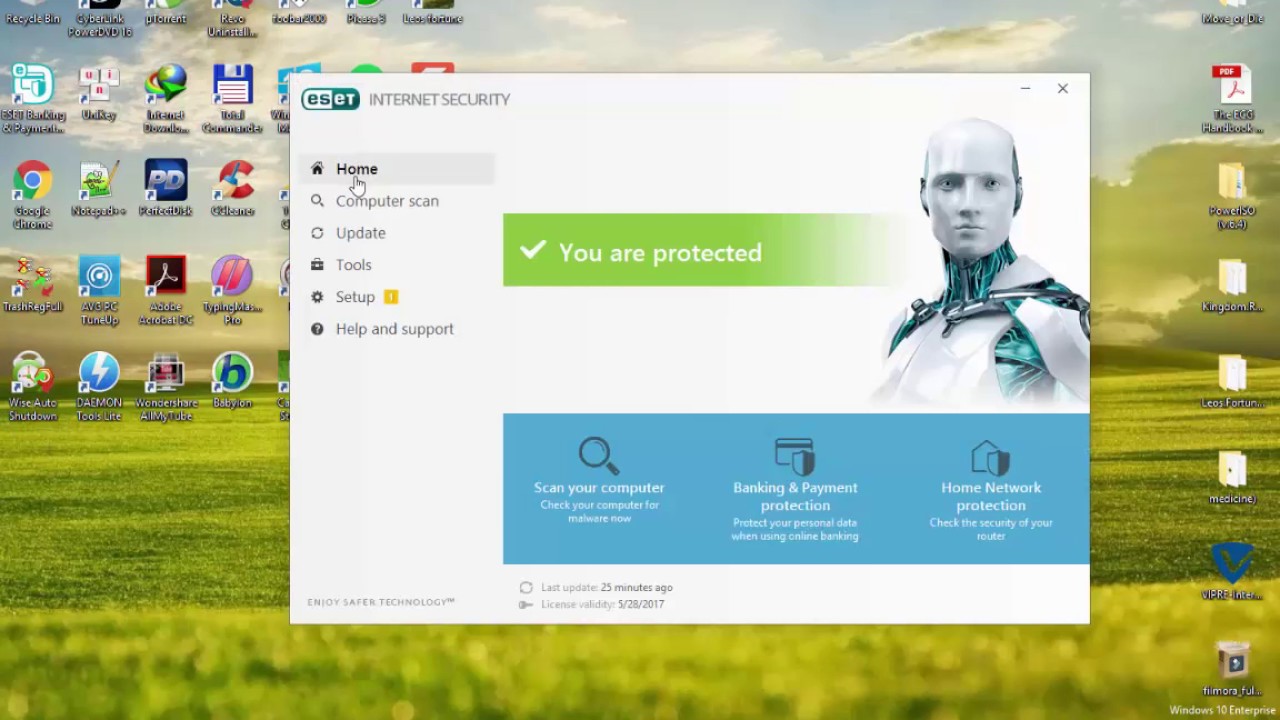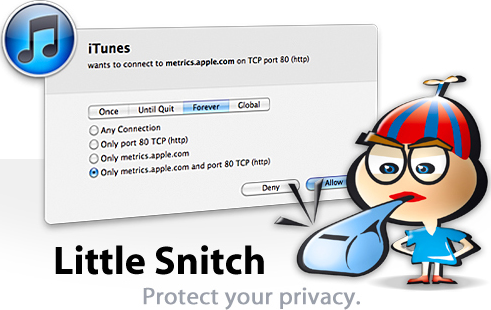



When they attempt to phone home, Little Snitch snitches.Īnd some apps don't even *ask* if you want to check for updates. If you read the entire user agreement, it *might* mention them, but might not. Many freeware apps ut there install things along with want you want. Pirates like it, of course, but it's useful for anybody. The bottom line is, Little Snitch is a great tool, but no tool is a subtitute for caution and vigilance. I've never actually seen an example of this, but it's possible, anyway. For example, if a nefarious application tell Mail.app to send an email containing sensitive data, then only Mail.app will be making a network connection, and since you'd probably "always allow" Mail.app to make connections, it would go through. Keep in mind that Little Snitch is not a magic bullet. One of these days when I'm in a "let's fix what ain't broke!" kind of mood I will install 2.0. I haven't upgraded to 2.0 despite the fact that I own it already (thanks to the free upgrade I got from MacUpdate's bundle a while back), because even 1.x does what I want it to do. I've been using Little Snitch for quite a while, and I recommend it.

I'm still on Tiger, so I don't know all the details. Little Snitch can stop outgoing connections, and on an app-by-app basis. And Tiger's firewall can't do anything on an app-by-app basis. Typical firewalls, including Tiger's, block incoming connections, but make no effort to block outgoing connections. The Tiger firewall is not at all comparable to Little Snitch. Little snitch isn't quite there yet, but I haven't found anything better. It was effective and uncomplicated to use. Just thought I'd like to hear what you guys have to say about it and if Little snitch is worth getting, or if there's something better out there? In any case this has got me thinking: how can we trust software like this which is supposed to keep us safe? It's like an anti-virus program: who better to spread viruses around than the makers of anti-virus software, and who better to spy on us than the makers of any-spyware. I haven't had the time to look closely at it, so I really can't tell how it compares with Little Snitch, but I read some negative stuff about it -the people behind it using it to harvest email addresses or something. There is apparently another similar application called GlowWorm which I downloaded the demo of. It seems like a very useful tool (I've even caught some spyware this way), and since I like to keep track of which software goes online and for what purpose I think I need a "firewall" for preventing outwards traffic. After that you just have to enter its configuration and tell it to go into demo mode again, for another 3 hours!). I've been using Little snitch (in demo mode) for a while now (it has a very generous 3 hour session limit.


 0 kommentar(er)
0 kommentar(er)
